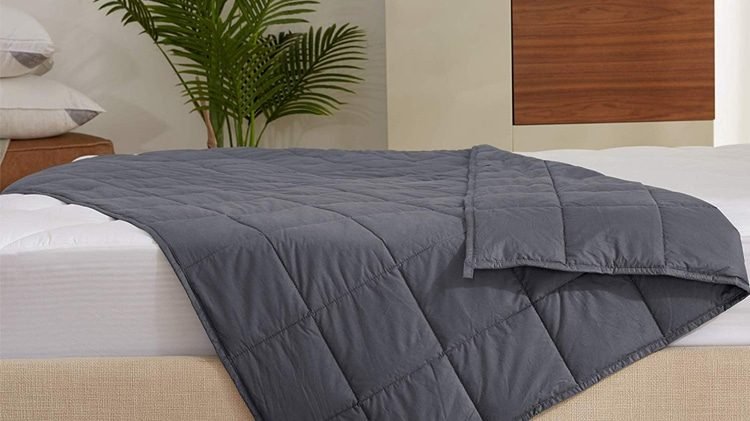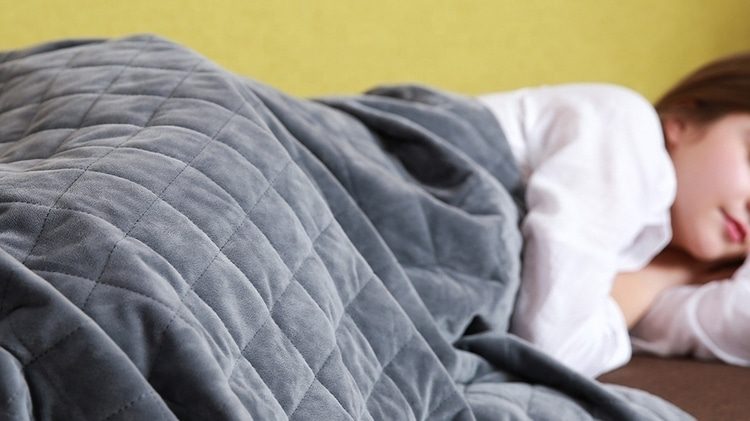Aging is a natural part of “getting older” but when you start to see significant memory decline, your loved ones may need the highest level of support and care. The onset of ‘dementia’ is one such condition that can negatively impact a person’s quality of life .
Most common in people over 65 years of age, dementia is an umbrella term used for a group of disorders characterized by a significant decline in memory and other cognitive abilities. The common age-related diseases such as Alzheimer’s, Parkinson’s, Wernicke-Korsakoff syndrome, and Huntington’s disease are all grouped under dementia.
If your loved ones are afflicted with any one of the above, you know these conditions are challenging in many ways. While there is no specific treatment to cure progressive dementia (caused by neurodegenerative diseases), experts believe the quality of life in such cases depends largely on the level of care that the person receives. In addition to medications and therapies, products such as weighted blankets can work wonders for individuals suffering from dementia.
Weighted blankets and lap pads are widely used to care for people suffering from Alzheimer’s and other forms of dementia. They can help alleviate the symptoms associated with these conditions and instill a sense of calm and well-being. In this article, we will discuss how weighted blankets can help those with dementia and the right way to use these products.
Weighted blankets in dementia care
Dementia is characterized by a decline in cognitive abilities, particularly memory, learning, and decision-making. When an individual’s ability in the above areas is diminished, it makes it difficult for them to perform their day-to-day activities leading to frustration, stress, confusion, and extreme mood swings. This, in turn, leads to anxiety and sleeplessness.
While the neurodegenerative process in dementia patients cannot be controlled or reversed, the symptoms can be managed with medications and alternative therapies. Weighted blankets can effectively alleviate these symptoms and help dementia patients live a better life.
The term “weighted” refers to the added weight in these blankets that work on the principle of deep pressure touch therapy (DPT). The heavy blankets when wrapped around your body exert gentle pressure on the body’s sensory points. This stimulates the release of neurotransmitters serotonin and melatonin—the “feel good” hormones that reduce stress and promote better sleep.
Deep pressure therapy is a popular technique to help people with dementia, depression and anxiety, autism, fibromyalgia, insomnia, and many such disorders. In a compact form, weighted blankets and lap pads, even weighted soft toys, offer the benefits of DPT to these patients.

Here is a detailed look at how they are particularly helpful for dementia patients.
Anxiety and panic attacks
Anxiety and nervousness are a common symptom, and sometimes an after-effect of dementia. Such individuals experience a progressive decline in their ability to remember things or process information, which makes them intrinsically insecure and anxious.
Weighted blankets in such situations offer a multi-fold advantage. The heavy fabric and overall feel of these blankets offer a sense of security and peace. Physiologically, it leads to an increase in the secretion of endorphins that regulate mood and social behavior. Being wrapped in these therapeutic blankets creates a sense of “grounding” and security, which in turn relieves nervousness.
Mood swings, stress, and depression
Losing control over your basic cognitive functions can be challenging for anyone, more so for the elderly. Adults with dementia, especially Alzheimer’s, often display erratic behavior owing to their mood swings. Treatment, in such cases, is a combination of prescription drugs including mood-stabilizing medicines, antidepressants, and counseling. But the medicines have their own side-effects and don’t work well for everyone.
Weighted blankets work towards the same goal albeit in a natural and safe manner. The “happy hormones” released through deep pressure therapy help in regulating mood swings. This also controls the excessive secretion of cortisol (the stress hormone), encouraging feelings of happiness and calm. Using a weighted blanket can feel like ‘a warm hug’ which works great for people suffering from dementia, who crave constant closeness of their loved ones.
Agitation and aggressiveness
People with dementia might often appear angry or agitated, sometimes to an extent of turning violent. There are a number of ways to deal with this, including being compassionate, setting up a supportive atmosphere, avoiding the usual triggers, providing supervision and using the right communication techniques, to help them cope up with their changing situation.
In addition to these, non-medical techniques such as the use of weighted blankets or lap pads can be really effective. Just placing it on the patient’s shoulders or wrapping it around the legs can stimulate the flow of endorphins and help them calm down. Weighted products can soothe the nervous system and relax the entire body. In such a state, a patient is more open to communication and aggressiveness takes a backseat.
The warmth of these blankets and the added weight create a ‘grounding’ effect, helping dementia patients manage their emotions in a better way.
Insomnia and restlessness
Individuals with dementia often have trouble falling or staying asleep for a full night. This is especially common in Parkinson’s disease. It could be due to the medications, the neurological condition, the psychological trauma, or a combination of all of these. Whatever the cause, poor sleep leads to a vicious cycle of restlessness, fatigue, and agitation, which can further aggravate the symptoms associated with dementia.
Weighted blankets can be particularly helpful in promoting good sleep. The extra weight in these blankets creates a sense of “grounding” and soothes the nervous system. The increase in serotonin levels, as a result of deep pressure stimulation also aids in relaxing the body. When serotonin naturally converts to melatonin, the body understands it’s time to rest and gets into the deep sleep mode. Repeated use can help people with dementia sleep well and feel fully relaxed.
Falls and self-injury
As per a clinical facility report, use of weighted blankets led to a drastic reduction in accidental falls—a common occurrence in patients with dementia. The added weight in these blankets offers proprioceptive input that makes the user more aware of his/her environment. It creates a sense of space as the user is able to feel his limb movements within the heavy blanket. Regular use allows these patients to respond better to external stimuli, thereby preventing falls and other forms of self-injury.
One-size-fits all?
Thinking of getting a weighted blanket for an elderly member in your family? It’s a great option. But before you order one, understand that these are not a one-size-fits-all product. Weighted blankets are therapeutic devices and need to be customized based on the user’s weight, height, medical condition, and personal preferences.

These blankets can be bought from commercial retailers or made at home—but you need to ensure that the fillings are sewn precisely and the weight is equally distributed across the blanket.
As a general rule, the blanket should not weigh more than 10% of the user’s body weight. Getting the right size is critical, especially for people who are physically weak and cannot handle the excessive load. If you feel they might find it challenging to put on or remove the heavy blankets on their own, you can opt for other products in this niche, such as weighted lap pads and vests, that offer similar benefits and are easier to manage.
You can choose from a variety of fabrics including cotton, flannel, mink, satin, or a mix of two, depending on the user’s preference. The filling too can be of different types, such as poly pellets, glass beads, grains, etc. The preferred and safer option is the plastic poly pellets as they don’t cause any allergic reactions (like certain grains), are non-toxic, easier to clean, and feel soft against the body. Again, the filling material can be customized based on your choice.
The fillers in these blankets also serve as a fidget tool. Elderly people especially those with dementia can feel restless and uneasy at certain times of the day. This agitation can be typically seen through their fidgety hands. Whether it is rubbing their hands together, twisting fingers, or just pulling on a piece of cloth, these actions help them re-direct their energy.
Weighted lap pads with poly pellet or beads can provide the much-needed sensory stimulation at such times. Certain fidget toys also work well in keeping their hands in motion and taking the focus away from any distressing situations. You can experiment with different textures and fillers to see which ones are most effective. Avoid objects with sharp edges to prevent injuries.
Weighted products, including lap pads and blankets, can additionally be used when the person is awake. These can be draped across the shoulders or legs just to provide a warm sensory input. This helps in keeping the user calm and in a positive state throughout the day. Older people, in general, are sensitive to colder temperatures. Weighted blankets use layered fabrics and can provide the much-needed warmth to keep them comfortable.
The go-to tool for people with dementia
Dementia in its various forms can be debilitating and hard for the patients and their family members. Since there is no specific cure for this condition, the focus should be on supporting the patient and minimizing the discomfort associated with it. Weighted blankets are a non-drug option that can work effectively with the regular treatment therapies, as directed by your healthcare provider.
There is enough scientific evidence to prove the efficiency of weighted products in dealing with anxiety, sleeplessness, lack of attention, and other symptoms associated with dementia. In many households and caregiver settings, weighted blankets are used as the go-to product when the dementia patients are having a meltdown or difficulty sleeping.
Whether you choose a blanket for a full night’s sleep or a lap pad to keep your loved one comfortable through the day, the investment will be worth it. Regular use of these products can go a long way in improving the quality of life for your loved one and putting a smile back on their face.

